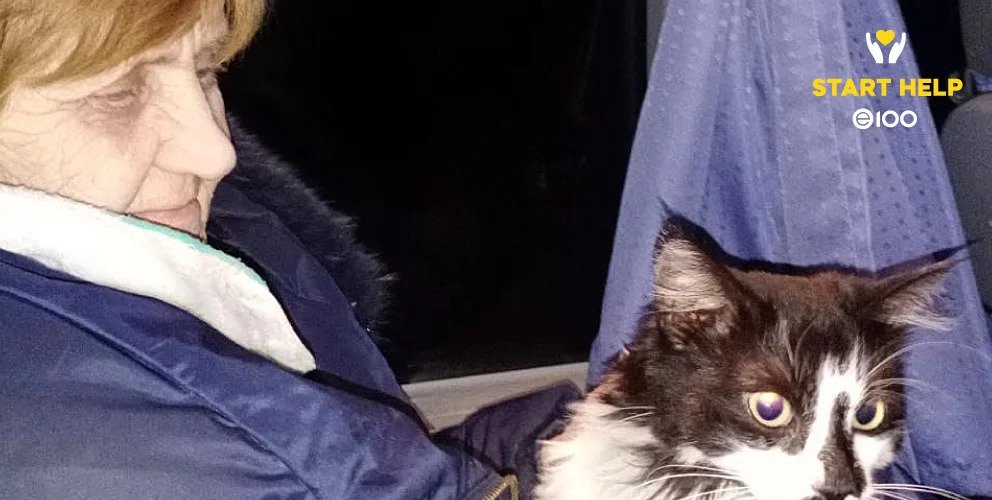Help for Ukraine – the story of Yulia

On 24 February, the lives of millions of people in Ukraine were turned upside down.
This includes also our employees: 25 employees from the Warsaw office and 77 from the Kiev office.
Today we want to share a story of Yulia, who has been working for almost a year in the E100 HR department in Warsaw. Despite being embedded in the cruelty of war, this story demonstrates how important the involvement, willingness to help and empathy are.
Every day, our employees dedicate their time, energy and own resources to create a safe harbour for the possibly greatest number of refugees here in Poland.
We thank them from all our heart!
The story of Yulia
On the first day of war, on 24 July at 4.00 of the Polish time, Yulia was called by her grandma.
- They shoot. Close to our house – she said.
Then she contacted Yulia’s brother, who immediately left his apartment in Kharkiv and went to take grandma away. Grandma lived 15 km away, in the vicinity of the Ukrainian and Russian border.
When he approached her house, he saw the train of the Russian tanks. He didn’t know how many there could be, since the train seemed to have no end.
He took grandma and her 3 cats to the car and turned west straight off. The aim was to get to the Polish border and take grandma away from Ukraine.
The way to Lviv (980 km), where the Yulia’s mum was awaiting them, took a week. They slept where Yulia could organise an accommodation by calling her family and friends.
In Lviv, apart from Yulia’s mother, they had a transport organised by Jacob – an employee of the Warsaw office. As soon as he found out that Yulia attempts to get her grandma away from Ukraine, he immediately declared his help.
On their way to Warsaw, they took also a woman and her two children, who tried to get away from the country. Olesia, who also works in the Warsaw E100 office, immediately booked the first accommodation for this family. The long-term stay was organised by her colleague from the HR department, also named Julia.
There are many people in our company who travel to the border and transport people to the cities and many people who provide accommodation, basic commodities and medicines – adds Yulia.
- We have appointed coordinates dedicated to medical, legal, psychological support and children care. In this way it is easier to manage this ocean of needs we have been currently facing.
- I received plenty of support from my colleagues where the fate of my family was at stake and where I had no idea, whether I will see my grandma again – she adds.
- I try to transfer this support further – by working as a volunteer at the collections, providing accommodation to the persons who have no place to stay.
When I ask Yulia about her situation in their home city, Kharkiv, her voice starts to shake.
- Last week I had a call from my grandma’s neighbours, they told us that they are still alive.
- The Russians shoot everything that moves – they said.
From several days Yulia has been unable to reach them.
She says: for me, life is divided into two parts – from before the war and now. It will never be the same.
Yulia does not want to talk about her home. And about the other places that no longer exist in Kharkiv.
